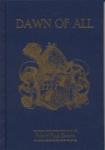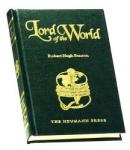What's New
Number the Stars
The amazing true story of how the people of Denmark secretly transported their Jewish countrymen by boat to safety in Sweden during World War II is told through the eyes of a girl and her family who assist in this effort. Suspense and action are intertwined with fascinating historical details of how the Danes succeeded in this endeavor right under the noses of the Nazis. There are some beautiful comments about the heroism of King Christian X and the devotion of his people toward him. There is a curious statement by the author at one point that the girl and her mother have become equals.
Homer Price
These clever and humorous stories of the adventures of a brainy, problem-solving small-town boy make great reading for grade-schoolers (especially boys) or a terrific read-aloud. This is suitable for rolling-on-the-floor type laughing (not terribly well-suited to bedtime!). A real classic! The sequel, Centerberg Tales is just as good. Older children may also appreciate allusions to liberal naming of townspeople after characters from the Iliad.
Julie of the Wolves
Her Eskimo name is Miyax, her American name is Julie. She is journeying through the desolate North Slope of Alaska, from Barrow to Point Hope, and starving. There are no lemmings, which means there are no weasels, no white foxes, no snowy owls - in fact, no food that Miyax can catch with only a knife. Her only hope for survival, she feels, is to befriend the wolves, to become a member of their pack, and this she sets out to do.
Just David
Young David has grown up in an isolated cabin with his father (since his mother's death when he was only four) in a beautiful mountain setting. There, his father has given him an excellent but unusual education - he is fluent in several languages, knows a great deal about science and nature and plays the violin beautifully. His father has sheltered him from all evil and taught him only what is good and beautiful.
Miracles on Maple Hill
Marly and Joe (ages 10 and 12) are two siblings who have always lived in the city. They and their mother had endured the apparent loss of their father during wartime (unclear which war - perhaps Korean) only to discover that he had been a prisoner of war. The family is finally reunited, but their father has changed; he is bitter, touchy, angry, always tired.
Men of Iron
This is a stirring tale in the tradition of the Knights of the Round Table and Ivanhoe. It takes place in the early 15th century. Myles Falworth is a young boy brought up in a poor but noble household, late in the reign of Henry IV of England. His father, a supporter of Richard II, has been unfairly accused of treason and outlawed. As a youth, Myles is sent as squire to the household of an old family friend, where his unpolished manners, fierce strength of will and impulsive actions win him both loyal friends and fervent enemies.
Dawn of All
This book, together with its counterpart Lord of the World, is an early venture into the "speculative" genre of fiction. Written in 1911, it could be considered early science fiction with its descriptions of future technology, but it is really much more a religious and philosophical exploration of the effects of belief systems on society.
Lord of the World
Lord of the World, written in the early part of the 20th century, is an intelligent and Catholic fictional extrapolation on the trend towards Modernism described and condemned by Pope Pius X in Pascendi Dominici Gregis and Lamentabili Sane








